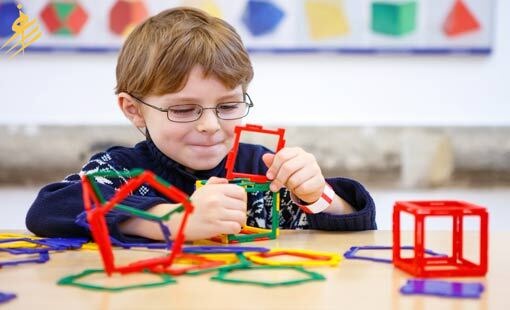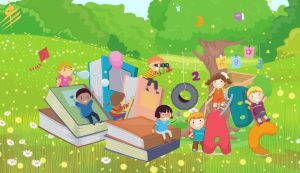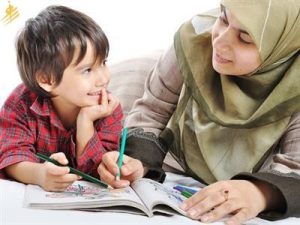Would you like to know the most important problems of gifted children, one of the main reasons for wasting gifted skills and not exploiting them is ignorance of the degree of sensitivity of the gifted, especially in the stage of development, and their difference from others in many fields, and the country always needs smart individuals who can solve its issues and achieve its aspirations through the appropriate use of their skills and abilities and find these geniuses at an early age and provide them with deliberate care Perhaps one of the most important responsibilities of the teacher and to reach adulthood without defects intractable or squandering their potential.
The main reasons for wasting the talents of gifted children
There are several main reasons why gifted children are wasted, including:
- Lack of motivation and encouragement Gifted children may sometimes need additional motivation and encouragement for development and progress in specific areas, and if this motivation is not available from parents or teachers, this may lead to neglect of talent and decline in performance.
- A course-based education system and standardized exams can not meet the needs of gifted children, they may get bored in the classroom and miss a challenge, resulting in their potential not being fully exploited.
- In some cases, the family or society can put great pressure on gifted children to follow a certain path or achieve specific successes and set unrealistic expectations for them, which may lead to the child feeling frustrated and stressed.
- Lack of social support Gifted children may feel isolated if they do not have adequate social support from family, friends or teachers, and this isolation can lead to a loss of motivation and self-confidence.
- In some cases, a child’s talent may not be discovered early enough, resulting in missing important opportunities to develop those talents in their early stages.
- Gifted children may sometimes experience discrimination or prejudice, both within the educational environment and in society at large, hindering their progress and creating barriers to the development of their talents.
- Distinguished talents may need a significant financial investment to develop and develop them, and if parents or concerned authorities are not qualified to provide this support, this may negatively affect the development of talent.
Who are the outstanding children?
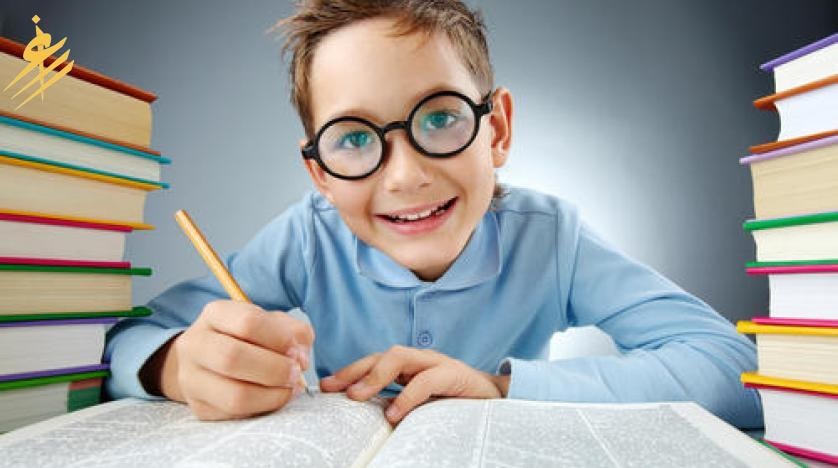
Outstanding children are those who possess high levels of intelligence, positive attitudes, and unique talents. According to various statistics, a child who consistently shows exceptional success in any worthwhile activity or field is considered gifted or genius.
Teachers do not always notice outstanding students in the classroom where they can either outperform or advance the rest of the class, as a result of which their special need for care is not properly felt or recognized. However, students with disabilities always need a specialized teacher to provide them with additional attention.
Since psychological traits are constantly prevalent, it is very difficult to identify matters related to psychology, and as a result, there are no distinctions or clear boundaries that quickly or decisively separate groups from others.
As psychologists have distinguished between groups of very gifted and talented people based on the level of intelligence, pointing to the form of upper and lower limits, the classification used in this discipline is not entirely agreed.
Children who are at the top of the population distribution because of their mental talents are considered high achievers and academically gifted people are very intelligent, have an IQ of 130 or higher, are creative thinkers and producers and also have exceptional competence in disciplines, and can solve everything if given the right educational opportunities to solve problems, create new knowledge and improve culture in the future.
Suggestions for gifted children
Some of the suggestions made for gifted children are as follows:
A gifted child acquires some irresponsible habits if he is placed in a regular classroom Although he can easily complete the tasks assigned to him, there are moments when he chooses not to think or try to complete them and these children often develop maladaptive and antisocial behaviors, yet high achievers get the opportunity to work on projects that push them forward and fully develop their potential in a particular class.
High achievers are often given the opportunity for a double promotion when private lessons are not available, forcing them to interact with older and more mature children. However, it is important to remember that an exceptional child may not always be better at this stage especially with regard to social inclusion and other development-related concerns, in addition to that he is likely to face some adjustment problems and even when the child is smarter than others, especially in academia, the This does not guarantee that he will not face social adaptation problems when he joins a completely new group and either way, if he is placed in a special class, he will be able to overcome this challenge, as he will be able to progress in his class and get passing grades at a regular pace.
Gifted children often suffer from poor social adaptation because they last longer in regular classes due to lighter duties which make them easier to accomplish, and they finish these tasks faster than expected which saves them a lot of time, and sometimes typical children’s minds are distracted to look for other things and many children have shown exceptional efficiency according to research results, but they have been kept away from school to avoid boredom. which they may feel and reflect on their impression.
Traits of gifted children
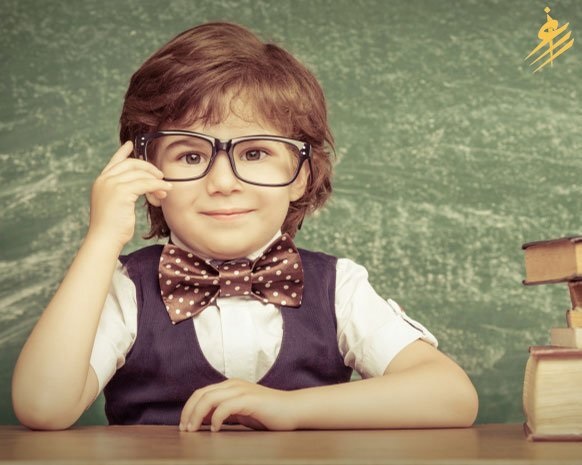
Gifted child traits that contribute to eliminating gifted children’s problems after following adequate care standards include:
Physical traits
Studies of exceptional children show that their physical development is above average compared to normal children, these children are heavier, taller, more developed, have above-average overall health and will remain so until adulthood, and these exceptional children have different motor and control skills.
Development of mental qualities
Studies conducted by scientists show that exceptional children develop more fully than normal children in everything and acquire many qualities in their personality and intelligence, and learn to walk, speak and read at a very early age. Research on mentally gifted children revealed that these children have higher expectations for themselves and their academic performance, respond more quickly, show clearer progress, engage in a wider range of activities in the classroom, and have more diverse interests than normal children.
Some researchers said that children with higher IQs are less interested in procedural topics such as physical training and more interested in abstract topics such as literature, discussion, etc. They have also been found to be somewhat isolated, and studies have shown that according to measures of mood and social maturity, superior children performed better than average and most gifted children are aware of and exploit their talents, according to research, have highly developed mental processes, generate ideas easily, and can identify gaps and weaknesses in issues.
Personal qualities of exceptional children
Studies reveal a strong and positive relationship between personality and mastery and gifted children are undoubtedly more attractive, famous, ambitious, caring and diligent than ordinary children and can tolerate frustration better than anyone else, and usually have a tremendous motivation to learn and create.
High achievers include the following: They are reckless, selfish, very enthusiastic, very interested in artistic expression and reflective thinking, and according to some psychologists they are usually enthusiastic, adaptable and sensitive full of useful suggestions, and many recent research indicates that people view their creativity and superiority as an extension of children’s play or a substitute for it, and accurate imagination, thoughts and daydreams that are freely ignored in childhood are the source of creative ideas, while ordinary individuals suppress Starting, innovative and bright ideas, exceptional children easily adopt them.
Social traits and family history
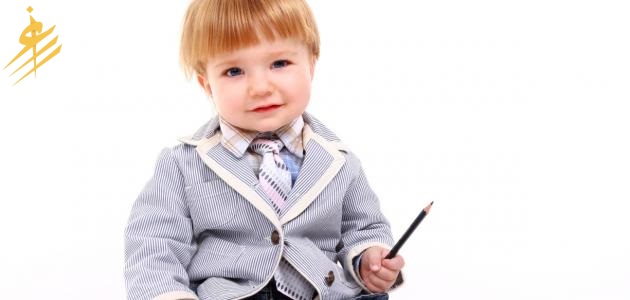
Smart children usually come from educated and professional parents. In addition, they are part of the highest professional group represented by doctors, scientists and senior staff, and live in a prestigious and supportive environment, and they are also social and obedient. Studies show that these children are highly loved and sought after by their peers and the elderly and they possess all the traits mentioned earlier, and because the trait of introversion is the first pillar for them, which makes them closed to themselves and avoid the group, some researchers believe that these children are shy and enjoy solitude These children always prefer games that require judgment and brain processing, and they are more mature both socially and emotionally compared to children of the same age.
The most important problems of gifted children and how to overcome them
The most important problems of gifted children and the most important proposed solutions are the following:
Absorption Speed:
An intelligent child is quick to understand and finds it easier to relate what he learns to other things than others and enables him to perceive the image clearly and with minimal explanation, when it comes to unique situations that deviate from their interpretations, and talent can require additional investigation or discussion and easily tailor it, regardless of the field – law, language, or any other scientific discipline.
The source of the problems of gifted children
This exceptional language ability is likely to become an obstacle to the teacher when leading the lesson or while teaching the gifted and each session adopts the field of controversy, and there are endless discussions and conversations that continue and deviate from the intended path of the gifted In fact, the teacher may sometimes find himself confused in responding to the criticism and recommendations of the genius, forcing him to shout at the child or silence him to prevent him from speaking, and he manipulates the opinions of his friends when they discuss them and can This can lead to feelings of confusion, distraction or discomfort.
Suggested solutions
The teacher must understand that the student needs a course that allows him to provide linguistic guidance in a way that satisfies him, and from here the genius finds himself solving linguistic puzzles, evaluating phrases with multiple or confusing meanings, and engaging in discussions instead of the arguments that he imposes on everyone, and linguistic phenomena such as rhyme and alliteration are tracked and sets limits on what can be done, and what cannot be addressed requires the educator to be fairly firm, but he must do so while trying to convince Unlike his colleagues, the genius can be persuaded to think more complex because of his superiority and be able to see the image no matter how big it is and the expected result in advance, which facilitates the teacher’s ability to explain to him the reasons behind limiting his ability to discuss and argue.
Perfectionism:
Al Nabegha constantly aims to excel in everything he does and enjoys learning, follow-up and development, in addition, he is creative and talented and this gives him the opportunity to do better in everything he does and become better than himself, he also enjoys losing himself in an activity that tests his mental abilities and requires work, thinking and immersion at a greater rate, and he also enjoys finishing the task and making sure that nothing is left unfinished.
The main problem
It is that the smart child is more aware of his mistakes than his peers when it comes to the jobs he completes and sometimes notices errors in things that the teacher himself overlooks, and therefore he often suffers from feelings of satisfaction, and what makes matters worse is that he carries an internal fear that the opinions of his peers and teachers about him will change and we notice the genius whipping himself and getting tired of small issues because of his mistakes and his fear of losing his rank and distinguished reputation, and he also finds it difficult to feel satisfied and may reach the point of He made him give up trying immediately because he believed that he would never be able to reach the ideal he envisioned and that is often unattainable.
Suggested solutions
Since this may be one of the most difficult things that a smart child must deal with, the teacher must be careful not to encourage the child excessively, for example, the teacher is keen to praise the (work process) instead of (the result of the job), so praising the effort must take into account any shortcomings in the result, in addition to that, the teacher must be an example to others by admitting his mistakes and making direct corrections, in addition to that he must The teacher should be careful when praising the genius and set high standards for his behavior in front of others.
Finally, he has to admit in front of the child the creative and imaginative ways in which people corrected their mistakes, and the gifted constantly aims to excel in everything he does and enjoys learning, follow-up and development, in addition, he is creative and talented and this gives him the opportunity to do a better job in all his matters.
Peer discrimination
An intelligent person usually feels unique and different from others and understands him faster, his answers are more accurate, he often has deeper and more complex interests or hobbies and his superior mental abilities are the reason for this distinction, while his friends play ball every day, he may be reading a prose book Although many coaches ignore this aspect of genius, also despite his physical superiority, he has a tendency to complex movements, in addition to various other things, All this energy inside him is used for various purposes and sometimes he attracts the attention of his friends to him with attention-provoking actions such as acrobatics and others.
Source of the problem
A genius suffers from a sense of alienation from his peers because of the noticeable differences between them and can make it difficult for him to create, develop or strengthen relationships. This disparity may also lead to his slowdown, confidence in his skills, abandoning the idea of practice and improvement and living this experience again at an early age may sometimes lead to vanity, low opinion towards others, loneliness, introversion, and lack of social participation, perhaps one of the biggest obstacles to the success of many great people. Throughout history, their poor social skills, their disregard for societal norms such as decency and politeness, and their inability to effectively convey their ideas to others have been proven by contemporary scientific research, they have discovered that genius and intelligence alone are not enough to succeed in the workplace, in the classroom, or even in an individual’s personal life; intelligence, genius and adequate social skills must be combined.
Solutions:
Gifted people should always be keen to communicate and interact with others who share their interests and should also be encouraged to mix and build friendships with the distinguished and this will give them a permanent sense that they are not alone and that there is a lot of room for improvement from themselves, and the genius must also get direct instructions to help with social communication techniques, in addition to an explanation of their importance instead of relying only on socialization, and he must also receive appropriate education in these areas and make sure that he He puts it into practice.
Problems of gifted and talented people
Many research results have shown that a remarkable percentage of them have a variety of issues and face educational and social challenges and these issues and challenges put them at risk of psychological instability, creating conflict and tension within them, and they also have a predisposition to decadence and deterioration, in addition to that, it loses people their confidence and enthusiasm.
Gifted and talented individuals face a number of problems that stem from their unique characteristics and traits for example, excessive sensitivity, intense emotions, perfectionism, uneven or asynchronous growth, etc. Other family, school and environmental factors also contribute to some problems, some of these issues can be summarized as follows:
Problems of the traits and characteristics of the gifted and talented personality
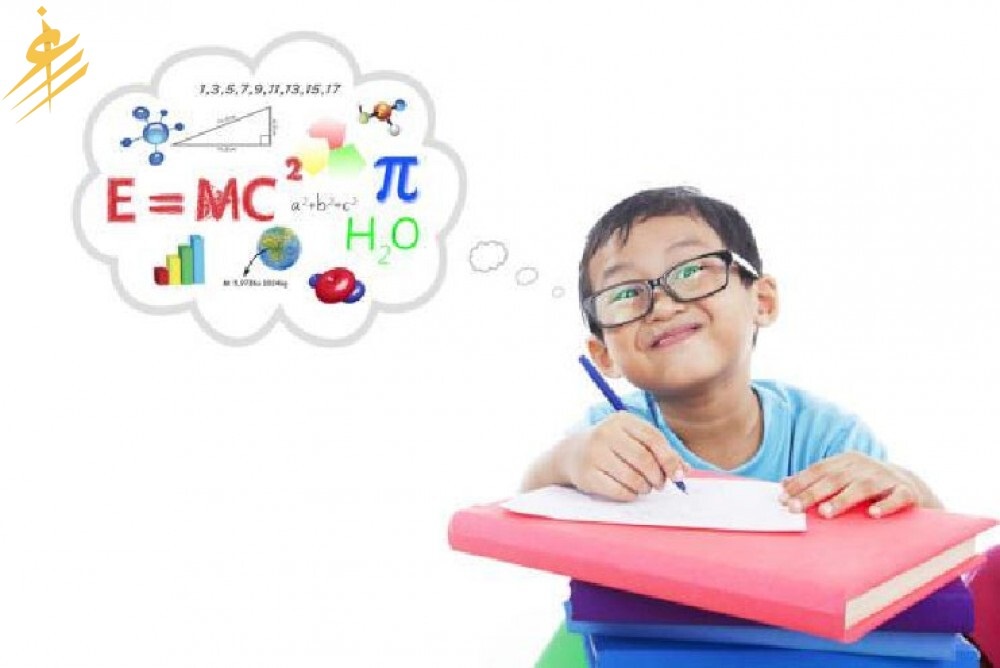
A student’s exceptional talent and energy can be a hindrance to social compatibility, making it difficult for them to form positive relationships and friendships with others, and putting them at risk of being excluded by their peers, which can lead to loneliness and poor psychological state.
A gifted child performs higher than his or her age-looking peers, while also having similarities to older individuals, putting him at risk of conflict between his or her desire to deal with peers the same age.
The gifted child feels unique and distinct from his classmates so they feel jealousy and envy and his abilities to keep up with events faster, and they pressure him and it is possible that they harassed him by referring to him as the “philosopher” or “the big mind”, or ignored him or avoided him In this sense, adolescents often refer to each other by pseudonyms such as “plow” or “moose”, instead (weevil books) Thus, the student refrains from contact with his peers, choosing instead isolation, retreat and escape. to his own world, preoccupied with his creative, scientific, literary or musical endeavors.
It is possible that some exceptionally gifted people choose to hide their talents and deny their normal abilities by acting as if they are average or even stupid. As a result, they often achieve or perform less than their abilities allow. He says he does not know how to respond to the teacher’s queries and ignores his studies to gain approval and fulfillment from his friends, and since ignoring performance is an abnormal coping strategy, there seems to be a huge disparity between his potential achievement. and actual achievement.
Anxiety, pessimism and feeling depressed
These feelings stem from their acute awareness of societal and global issues, their sense of moral obligation to care for others, their inability to face dire circumstances. Gifted children show strong emotions, as well as exceptional brain and language development, acquire moral norms and a set of values at an early age, adopt lofty values and beliefs, fully immerse themselves in meanings and connotations, accept the experiences of others, live with their grief, empathize with them, and think as if they are mature in complex issues, events that revolve around them, threats and problems that They often question the current rules and procedures and see a conflict or disagreement between ideals, principles, and actual behavior or reality and because of their psychological development and emotional immaturity, they also feel unable to influence and control the world around them and accept the contradictions of reality, which makes them feel confused, anxious, depressed and possibly hopeless.
Issues that stem from the family environment
The family can be referred to as the “first social womb” of the child during his upbringing and this explains the importance and severity of its impact on the child’s upbringing and there are several factors that affect the features of this social environment, including the size and composition of the family, the social and economic level, the child’s position within the family, and the methods of parenting common in society and social behavior techniques are learned primarily from the family, as academics who study mental health and education agreed.
It can be concluded that the family environment is like an environment for his growth, the formation of his first personality traits, and the main source of satisfying his desires, as well as motivating him and developing his energy In this environment, the child undergoes a systematic socialization process and faces immediate reactions to his initial exploration and experimentation in addition to his tendency to deviate from known thinking standards.
Stress and frustrations caused by differences in developmental manifestations
While the growth of a gifted child seems to be proceeding at varying rates of speed, like a unique fabric that combines different stages of growth and different ages, the average child seems consistent or compatible in terms of his physical, mental, emotional and social development according to his chronological age, and his cognitive abilities, understanding of reading and his way of thinking may be higher than his chronological age, but his motor skills and his handling of materials despite his crazy imagination and aspirations to achieve them on the ground, he is unable to do so because of his physical capabilities. Ltd.
Gifted Children’s Skills
Beyond all these considerations, there is a global consensus that the education of exceptional children should focus equally on the development of the required knowledge and skills as well as other mental goals.
- Critical understanding of issues
- Problem solving methods
- Analysis in the classroom
- Scientific objectivity
- Conceptual and language-based thinking
- Self-directed learning techniques
- Foster creativity
- Interests and reinforcement of feelings.
The goal of developing gifted children
The goal is to identify the causes of problems and get rid of the problems of gifted children:
- Increase the number of creators, innovators and talented people through training in the fields of thinking, leadership, management, creativity, talent, innovation, invention and the like.
- Supporting the innovation framework at the state level.
- Encouraging the innovative and intellectual capabilities of the State.
- Use communication and coaching to help find creative and talented individuals.
- Supporting educational institutions and pushing them to adopt the ideas of innovation, creativity, talent, management, leadership and thinking to help them achieve their potential and build their self-confidence.
- Encourage students to acquire and apply the ideas of creativity, talent, management, leadership and thinking.
- Supporting scholarships to study specialized fields for talented and distinguished talents.
Read more about:
Etiquette of food and drink for children
Ideas that help develop the talent of gifted children
I have included some ideas that can help develop the talent of our children during their formative years and get rid of some of the problems of gifted children:
- Give your child your full attention when he speaks.
- Give your child access to as many entertaining experiences as possible, such as going to museums, archaeological sites and exhibitions, and be given various publications, books, and enriching and cultural materials.
- Do not force your son to have certain interests Give him the opportunity to investigate independently he is able to do so.
- Refrain from using bullying methods, especially those that instill a fear of failure, and give the child the opportunity to try again.
- Encourage your smart child to play, relax, and participate in the activities of their choice, not because they will make them smarter.
- Give him space to meditate, think and dream without overdoing cultural activities.
- An intelligent child finds it difficult to get creative when his schedule is full of pre-prepared events.
- Encourage your child to continue exploring and experimenting while teaching them to accept mistakes and learn from them in a calm and cohesive way.
- Encourage your child to use their imagination and allow them to easily transition between reality and fiction; help them create creative theories and frameworks; use humor and joy.
- Try to instill new answers in your child instead of relying on pre-existing solutions that the child may find ready and easy to use.
- Raise your child to be open, flexible and non-rigid in thinking and give them the freedom to choose and make decisions.
- Get your child to take responsibility for solving their problems and topics by coming up with new and innovative solutions on their own, rather than relying on outside help.
- Set reasonable expectations for your child; don’t let them feel so happy that they feel helpless and disappointed if they don’t meet them, don’t make them feel so weak that they lack self-worth and their efforts aren’t valued.
- Never judge your child by his siblings or by the children of any of your friends.
- Allow your child to pursue their goals because they are the one who can assess their abilities and limits better than anyone else.
- Thank your child for trying; regardless of the outcome, they should be commended for making an honest effort.
- You should not expect your son to always be excellent at everything.
The importance of building the personality of a gifted child
The child can be used to promote faith and form a personality based on religious values by directing him towards studying religion and learning from reliable sources, and he can be encouraged to listen to trusted scholars and sheikhs and participate in useful religious activities, and a supportive and interesting environment must be provided for religion without compulsion, to help him avoid ignorance and misguidance and develop his religious understanding.
Building the child’s personality is a crucial period in human life, in which personal identity is formed and the values and principles that the child adheres to to remain with him in his future life are clear, and building the child’s personality helps him deal with challenges with confidence and leads him towards achieving his goals and aspirations in life.
The role of Ghiras Values in discovering your gifted child
Our supervisors and teachers play a very important role in the application of Grass values not only in ensuring the advancement of the level of our children scientifically, but also in the diligent observation of the talents and skills of children, and then preparing the necessary reports for parents and making a plan directed to exploit these talents and seek to enrich them.
Bottom line: The problems of gifted children can be easily solved if the causes of the problem are reached and the child’s ideas are taken into account and inspected from time to time, and Ghiras supports all meaningful ideas that increase the perception and building of personality in an integrated manner.



